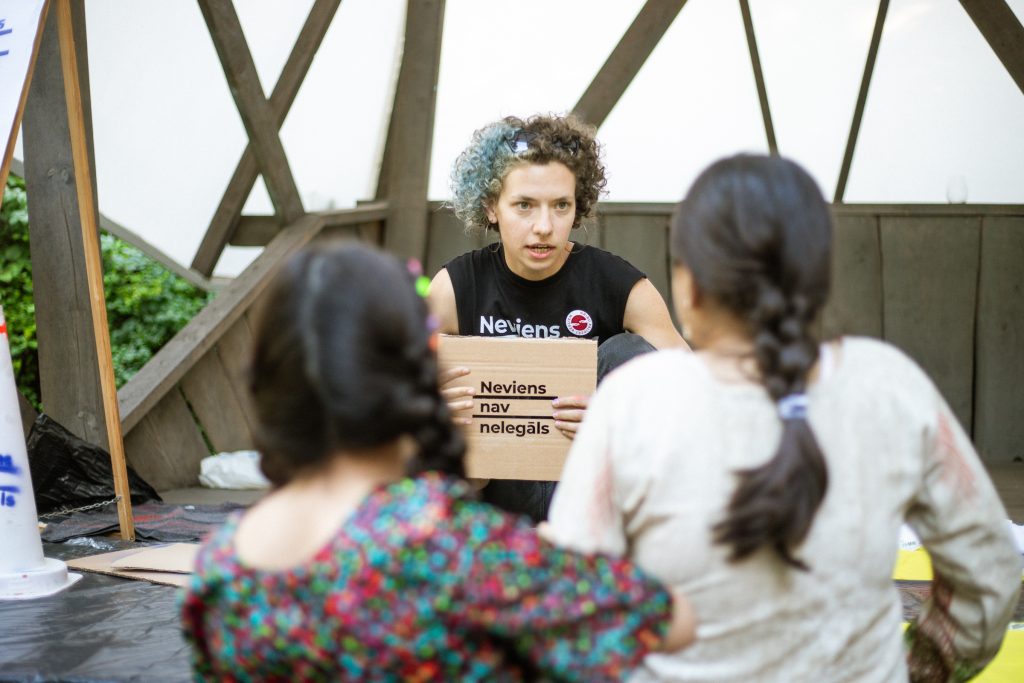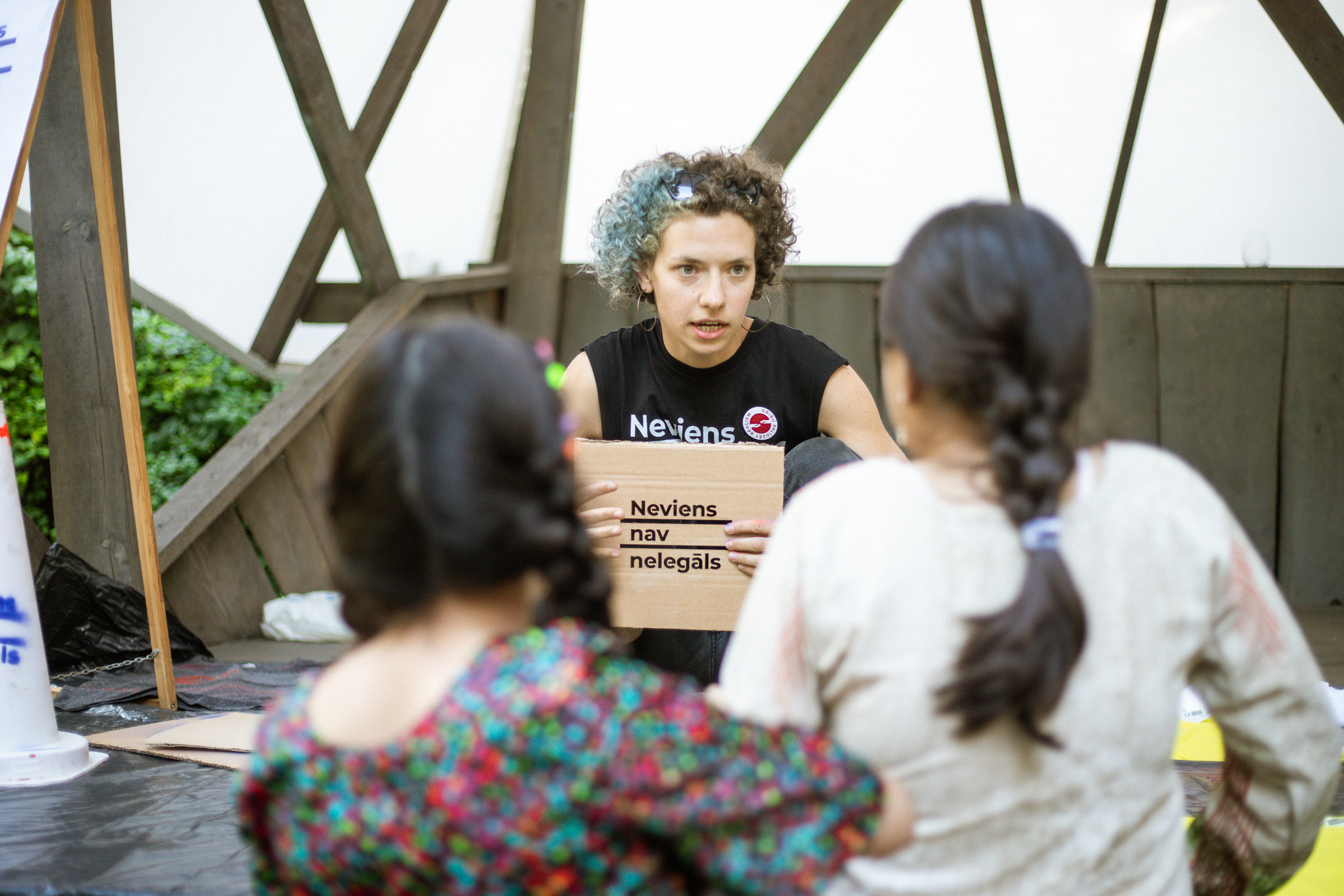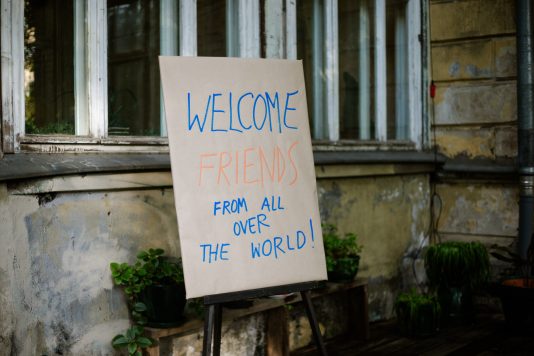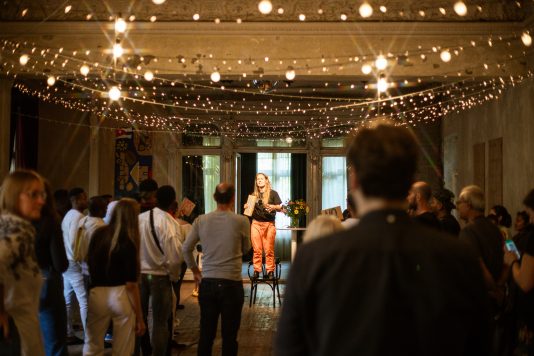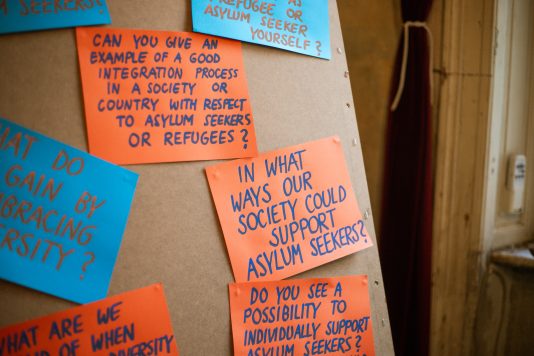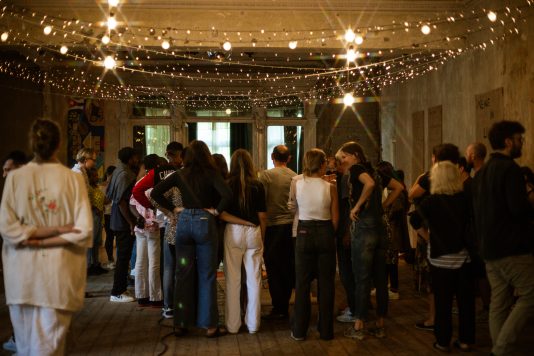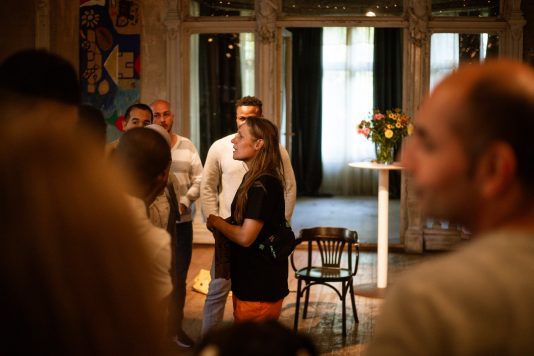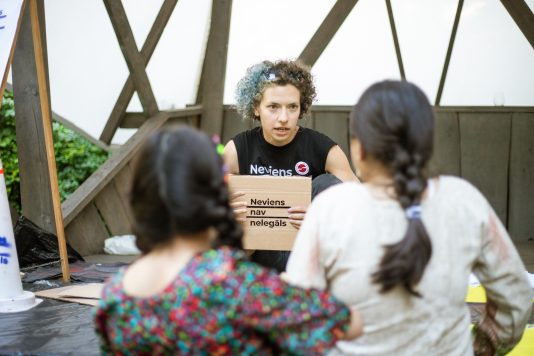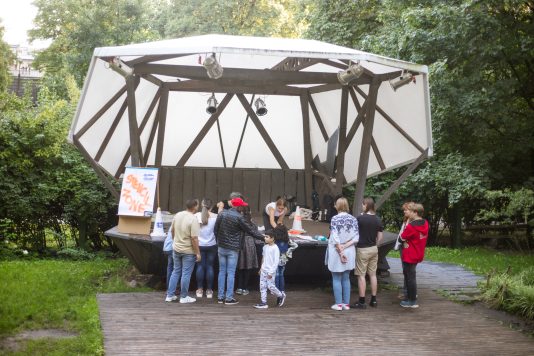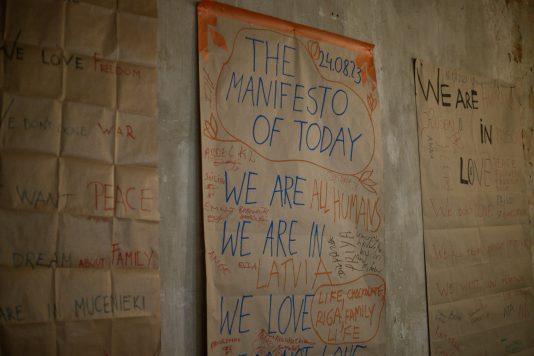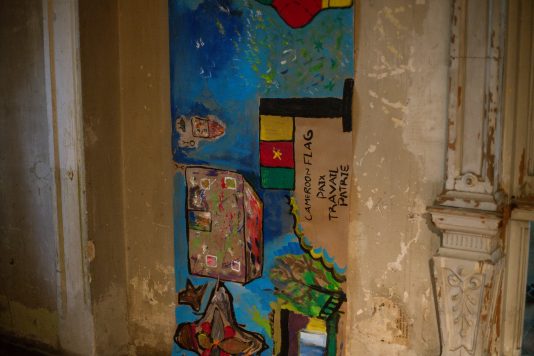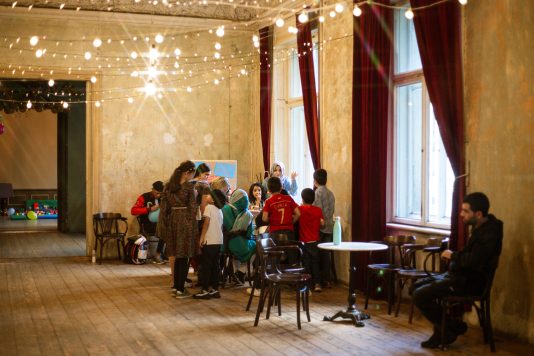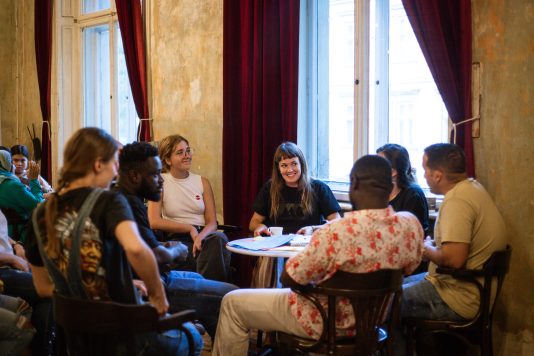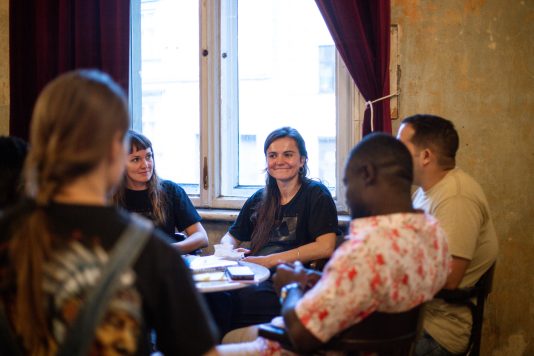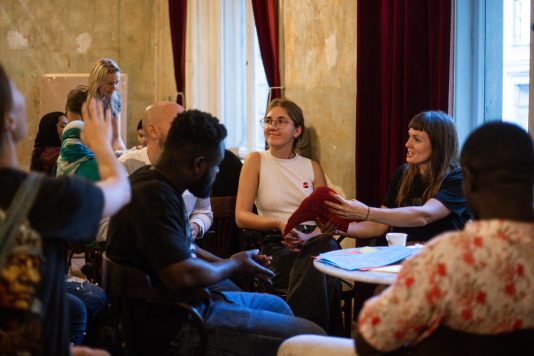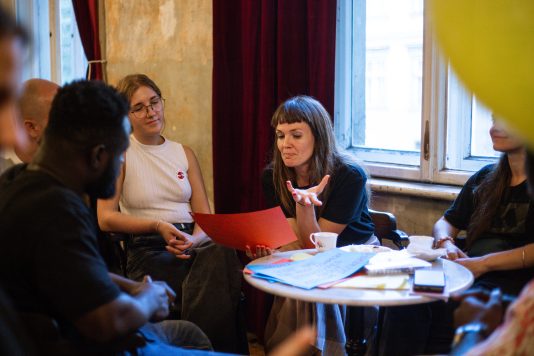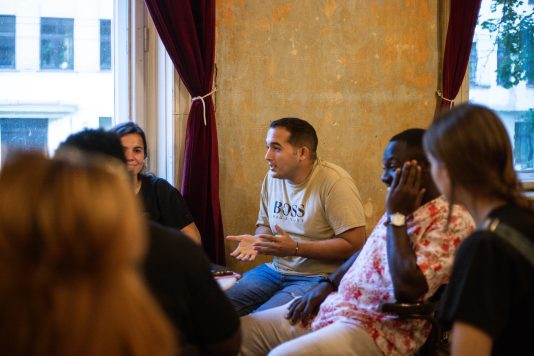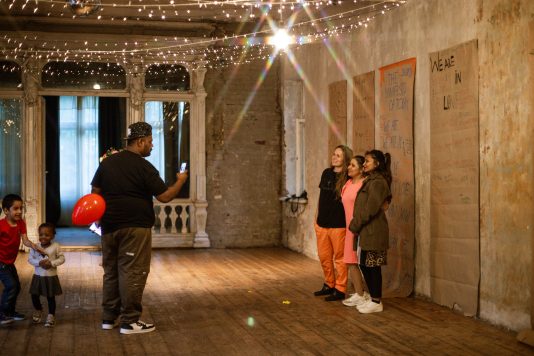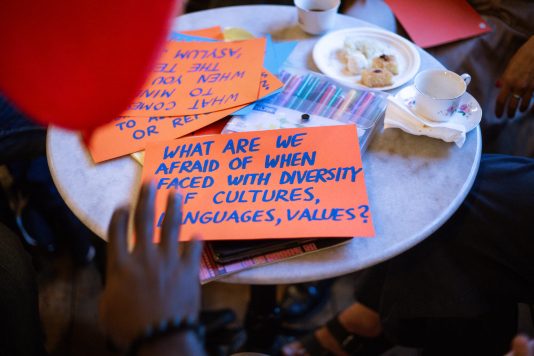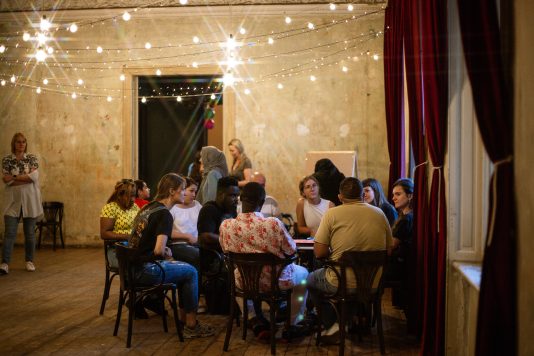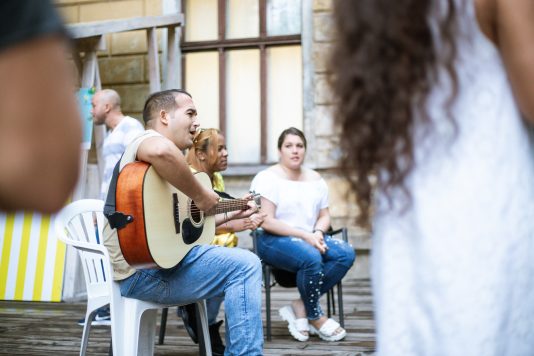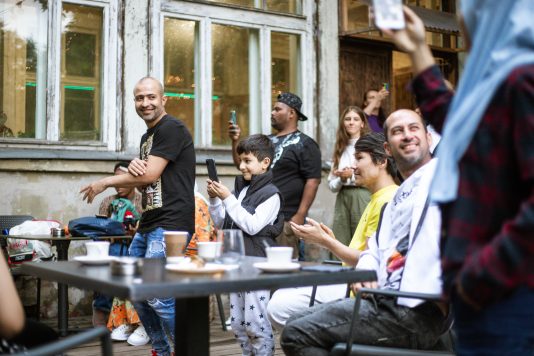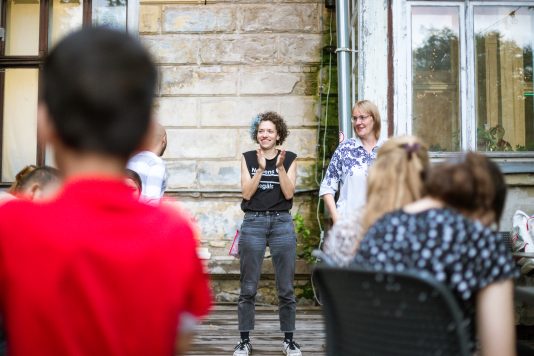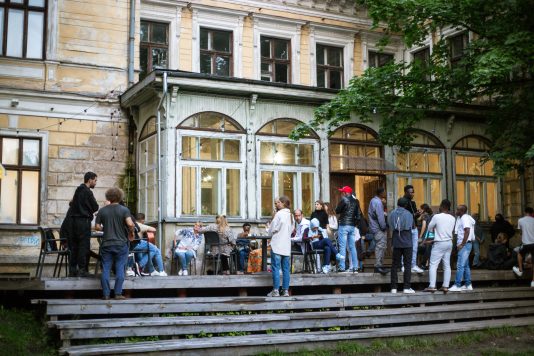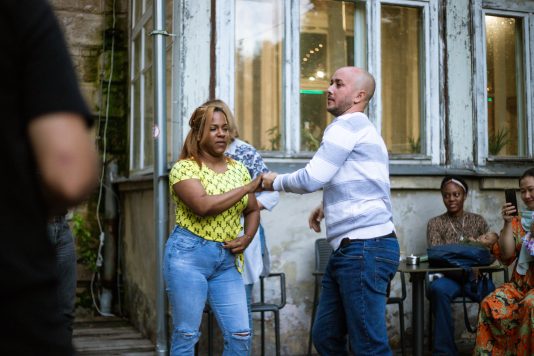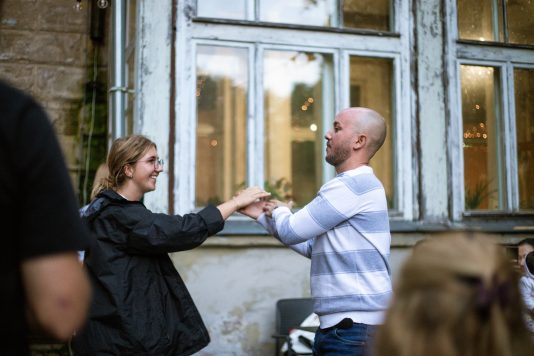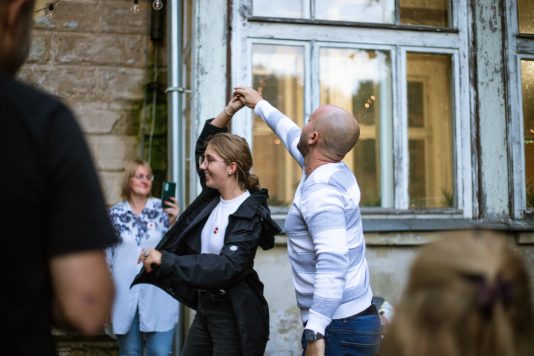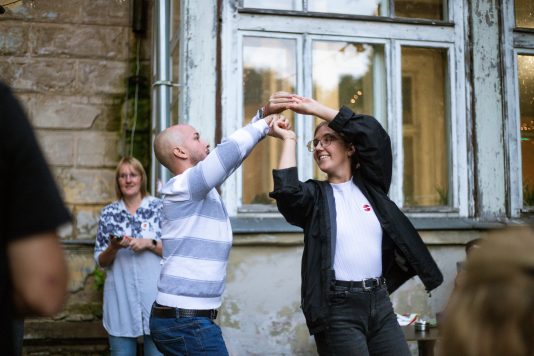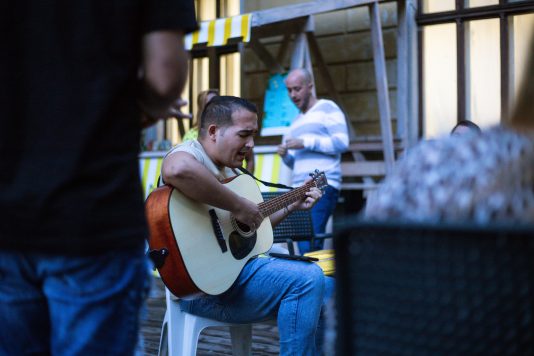“I am a theatre artist, working in movement and documentary theatre genres. I have spent the last 15 years outside my home country, living out of suitcases. My integration skills in each country have depended not only on personal motivation but also on the locals’ curiosity about my life and their hospitality. What does it really mean to be ‘local,’ and what is the responsibility of locals towards strangers? At the moment, I’m back home, and ‘being local’ for me means not only being known in the community but also being able to welcome other visitors – strangers.”
This idea became the backbone of theatre artist Vita Malahova’s Magic Carpets residency hosted by the New Theatre Institute of Latvia (NTIL). Her long-term plan is to collaborate with asylum seekers and create a performance about their life stories.
Vita Malahova holds a Bachelor’s Degree in Physical Theatre from Accademia Teatro Dimitri in Switzerland and a Master’s Degree in Expanded Theatre with a specialization in Documentary Theatre from the University of Applied Sciences in Bern. Her work explores belonging, vanishing traditions, and individual and collective experiences revealed through people’s life stories. She is the founder of the theatre group I Patom Theatre. Vita has international collaborations with theatre directors and companies such as Lola Arias, Astragali Teatro (IT), Metropolis (DK), Biloura Collective (IT), CuntsCollective (DK), Hakkehuset (DK), etc. Currently, Vita works as a freelance actress and theatre artist in Denmark, Switzerland, and Latvia.
Vita has previously worked with asylum seekers in other countries. She knew that to build a safe environment and trust, she needed time, energy, patience, and a trustworthy team to support each other in this process. For this reason, Vita invited visual artist Eva Vēvere and non-formal educator Lauma Žubule, who could support this residency and her in this process locally.
Eva Vēvere is a visual artist and international art project creator working with installation, image, and video formats. She creates interactive, performative works in which the involvement of the viewer is an important part of the work. Eva collaborates with cultural institutions, independent curators, and works on art education projects for various cultural platforms. Her works can be found in the collection of the Latvian National Museum of Art, the collection of the Memorial Museums Association, and the Noass Video Art Archive. Lauma Žubule is a non-formal education teacher, psychologist, and supervisor working with youth groups, youth workers, teachers, social workers, and people from business and government.
Vita contacted the association “I Want to Help Refugees” as one of the most visible NGOs working with immigration questions in Latvia. The association, being quite new, was open and interested in the methods, games, tools, and knowledge that Vita, Lauma, and Eva could share with them. They aimed to take upon their further activities, educate, or encourage their colleagues.
Together with volunteers from “I Want to Help Refugees,” Lauma, Eva, and Vita organized various activities and workshops at the multifunctional centre “Mucenieki,” asylum seekers’ accommodation centre “Mucenieki,” and the accommodation centre for detained foreigners “Daugavpils.” They aimed to find ways to meet, communicate, and share experiences with people who spoke many different languages.
Building trust with people and ensuring regular attendance in the workshops proved challenging, as lives in such centers can change rapidly with no clarity or sense of security about the future. The artists had to adapt their plans and expectations each time they visited. Many difficult questions arose within the creative team during the process. How could they determine their own reachable goals for this process? How could they determine the wishes and needs of this ever-changing group? And where is the common meeting point for all of them?
Throughout the residency, the artists met, talked, and played games with different groups of people of various generations, nationalities, ages, and backgrounds. Some meetings were more playful, while others were more intimate and emotional. In general, these meetings served as a support mechanism for people, reminding them that they are still humans, worthy of laughter, enjoyment, slow or playful time together, sharing pain, happiness, and dreaming about tomorrow.
In one of these workshops, a collective manifesto was written:
Daugavpils
16.08.2023
We are humans
We are in prison
We love peace
flowers
freedom
rice
We don’t love prison and stigmatization
We all dream of a bright future
We want freedom now
ice cream
Ruben, Anna, Muhamed, Leon, S. Bhah Ehsan, Hakam Preet Singh, Akashdeep Singh, Vita, Egils, Samel Deep Singh, Sanu, Kristiāna.
After a month and a half of intensive classes and meetings, the topic of “the act of welcoming people” came to the forefront. How and why do we welcome each other in our homes, cities, countries? What are the concerns or expectations in doing so? The final event became a welcoming act itself and a celebration of the workshop participants, representatives, and friends of the association “I Want to Help Refugees.”
Participants revisited their experiences together, celebrated the reunion, and discussed how words such as “we,” diversity, inclusion, integration, respect, emotional and physical boundaries between people, etc., are understood and practically experienced today in Latvia. Currently, Vita and her team are continuing workshops online, hoping to develop and find supporters for a documentary theatre performance.
Curatorial text by Linda Krūmiņa
